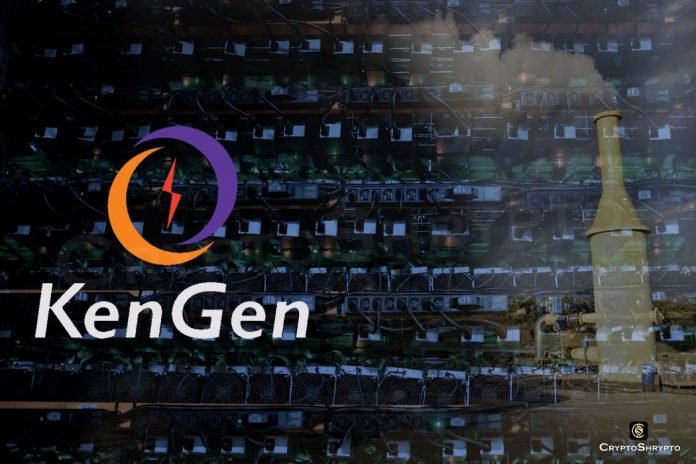Kenyan energy company KenGen claims 86% of its energy is generated geothermally from pockets of ground source heat in the Great Rift Valley. According to the sources, KenGen has space at its new industrial park in Olkaria, near its flagship geothermal power station. KenGen wants to rent the space to Bitcoin miners and expect the miners to buy its electricity generated using renewable sources. KenGen may be able to fulfil numerous aims at once by recruiting miners to the nation. It has the potential to improve miners environmental sustainability, which has been under intense scrutiny across the world. Despite Mwangi excitement, there have been no indications of miners seeking to relocate to Kenya.
On June 2, Acting Director of geothermal development at KenGen Peketsa Mwangi remarked that his company was willing and eager to have the miners call Kenya home. He emphasised:
“We’ll have them here because we have the space and the power is near, which helps with stability.”
According to Cambridge’s Bitcoin Electricity Consumption Index (CBECI), there are presently no known Bitcoin mining operations in the eastern African nation, although it looks to be suitable for miners due to the region’s estimated potential 10,000 MegaWatt (MW) of geothermal energy capacity. Kenyan financial news station Capital FM highlighted tha KenGen now has a maximum generating capacity of 863 MW after building another geothermal power plant in April.
Bitcoin mining can also generate demand for more growth in KenGen’s power infrastructure, increasing overall supply and lowering costs. According to Statista, Kenya now has the world’s 12th most expensive power, with one kilowatt hour (KWh) costing roughly $0.22.
The country’s high power costs might be attributed to its low electrification rate. According to the WorldBank, by 2020, only around 70% of the population will have access to the centralised grid. The Kenyan government might potentially benefit from increased money through mining fees and even taxes. Kenya has a very high rate of crypto adoption due to the number of peer-to-peer transactions.
Since last year, the Central Bank of Kenya (CBK) has been investigating the possibility of a central bank digital currency. In February, CBK cited lesser costs and quicker transfer rates as advantages of using a CBDC.




